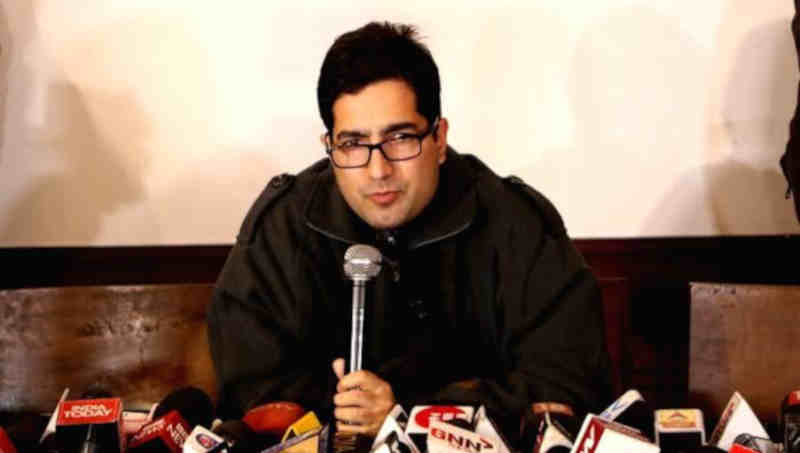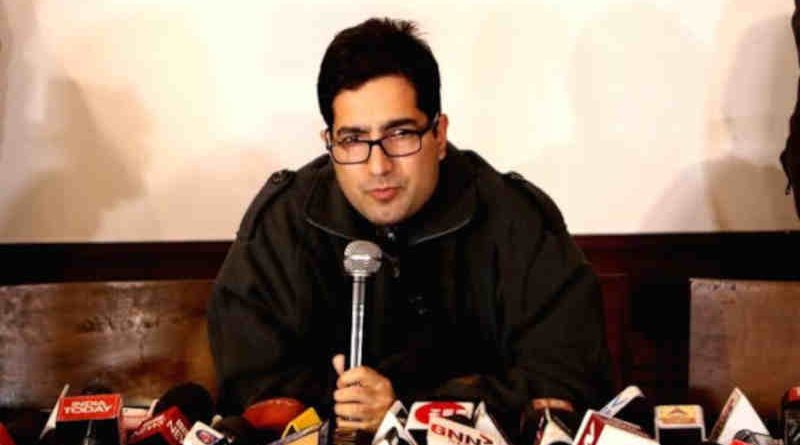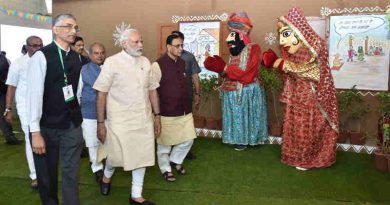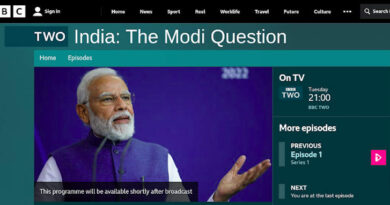Kashmir Conflict: Modi Critic Shah Faesal Arrested

Shah Faesal says that Kashmiri constitution has been “murdered” by Modi’s decision to end the semi-autonomous status of Jammu & Kashmir (J&K).
By Rakesh Raman
A former IAS officer Shah Faesal – who supports freedom movement in Kashmir – was today detained at the Delhi airport and sent back to Kashmir, which is a disputed territory between India and Pakistan.
On reaching Srinagar in Kashmir, he was again arrested under the Public Safety Act (PSA). Reports suggest that Faesal was going to Istanbul when he was taken into custody and placed under house arrest in Kashmir.
He has been criticizing the Indian government headed by Prime Minister (PM) Narendra Modi for abrogating Article 370 of the Constitution that ensured special privileges for the people of Kashmir.
Faesal denounced the Modi government for suppressing the voice of 8 million people of the Kashmir valley who want freedom from India. In an interview to BBC News on Tuesday, Faesal said India has ‘murdered’ democracy and the choice is to be a stooge or a separatist.
[ Also Read: BBC Defends Its Reporting on Violence in Kashmir ]
He added that Kashmiri constitution has been “murdered” by Modi’s decision to end the semi-autonomous status of Jammu & Kashmir (J&K). Earlier in March this year, Faesal had launched his political party “Jammu and Kashmir People’s Movement” (JKPM).
He had resigned under protest from his Indian Administrative Service (IAS) post in January, saying Muslims had been reduced to second-class citizens in India. He had resigned citing “unabated killings” of Kashmiris by Indian security forces in Kashmir among other factors.
Faesal, 36, also criticizes the Modi government for subverting public institutions such as the Reserve Bank of India (RBI), Central Bureau of Investigation (CBI), and the National Investigation Agency.
[ Also Read: Imran Khan Warns of Nuclear War with India ]
Kashmir Conflict
Earlier, on March 5, Modi government had abruptly changed the constitutional status of Kashmir, leading to an unprecedented unrest in the valley.
The Modi government has revoked Article 370 which gave special status to J&K. India’s Parliament approved the resolution abrogating Article 370 for J&K and a bill to bifurcate the state into two union territories: J&K and Ladakh.
India’s Home Minister Amit Shah said the traditional provisions of the constitution were responsible for poverty and lack of development in the state, and now without the special status, instant development will happen in J&K.
[ UN Chief Concerned over Human Rights Violations by India in Kashmir ]
This is an absurd argument because there is hardly any development happening in all other Indian states which exist only as underdeveloped terrains.
Under the 5-year rule of the Modi government, poverty, joblessness, lawlessness, corruption, hatred among different communities, and attacks on press freedom have increased exponentially. If Modi government could not bring development to other states, how will it develop Kashmir?
The Modi government’s annexation of Kashmir is a unilateral, authoritarian move, which is expected to make Kashmir a veritable inferno because most people of Kashmir do not want to live under Indian rule.
[ Malala Issues Meaningless Statement on Kashmir Conflict ]
Hindu Rashtra
Most Kashmiris – majority of them are Muslims – do not like Modi who is known for his anti-Muslim stance as Modi and his party BJP are determined to make India a Hindu Rashtra (a nation only for Hindus where Muslims are not supposed to live). The chattering classes believe that the forcible annexation of Kashmir is supposed to drive out Muslims from the valley.
Although the Kashmir issue is internationally recognized as a bilateral issue between India and Pakistan, Modi government has claimed that the change of governance model in Kashmir is its internal issue in which Pakistan cannot interfere.
As a result, the tension between India and Pakistan has escalated to the level of a possible nuclear war, as both the countries stake a claim to Kashmir and both are nuclear-armed nations with historical rivalry.
[ Real Voter News Magazine on Politics and Governance in India ]
Of late, UN Secretary-General António Guterres urged the enemy countries to exercise maximum restraint and resolve the Kashmir issue with peaceful means. He also has expressed his concern over reports of restrictions on the Indian side of Kashmir, which – he said – could exacerbate the human rights situation in the region.
As large-scale violence is expected against the Indian government’s abrupt decision to change the status of J&K, authorities have suspended Internet, mobile services and banned public gatherings in Srinagar area of Kashmir. In Srinagar city, there is said to be a total communications blackout.
Besides Shah Faesal, the Indian government has also arrested a slew of other local leaders who oppose the Indian government. The entire region is now under the control of heavily armed Indian security forces. It is stated that India has deployed nearly 900,000 security people to control unarmed Kashmiris, and nearly 80,000 civilians have been killed in the conflicts during the past 7 decades.
By Rakesh Raman, who is a national award-winning journalist and social activist. He is the founder of a humanitarian organization RMN Foundation which is working in diverse areas to help the disadvantaged and distressed people in the society. He also creates and publishes a number of digital publications on different subjects.





